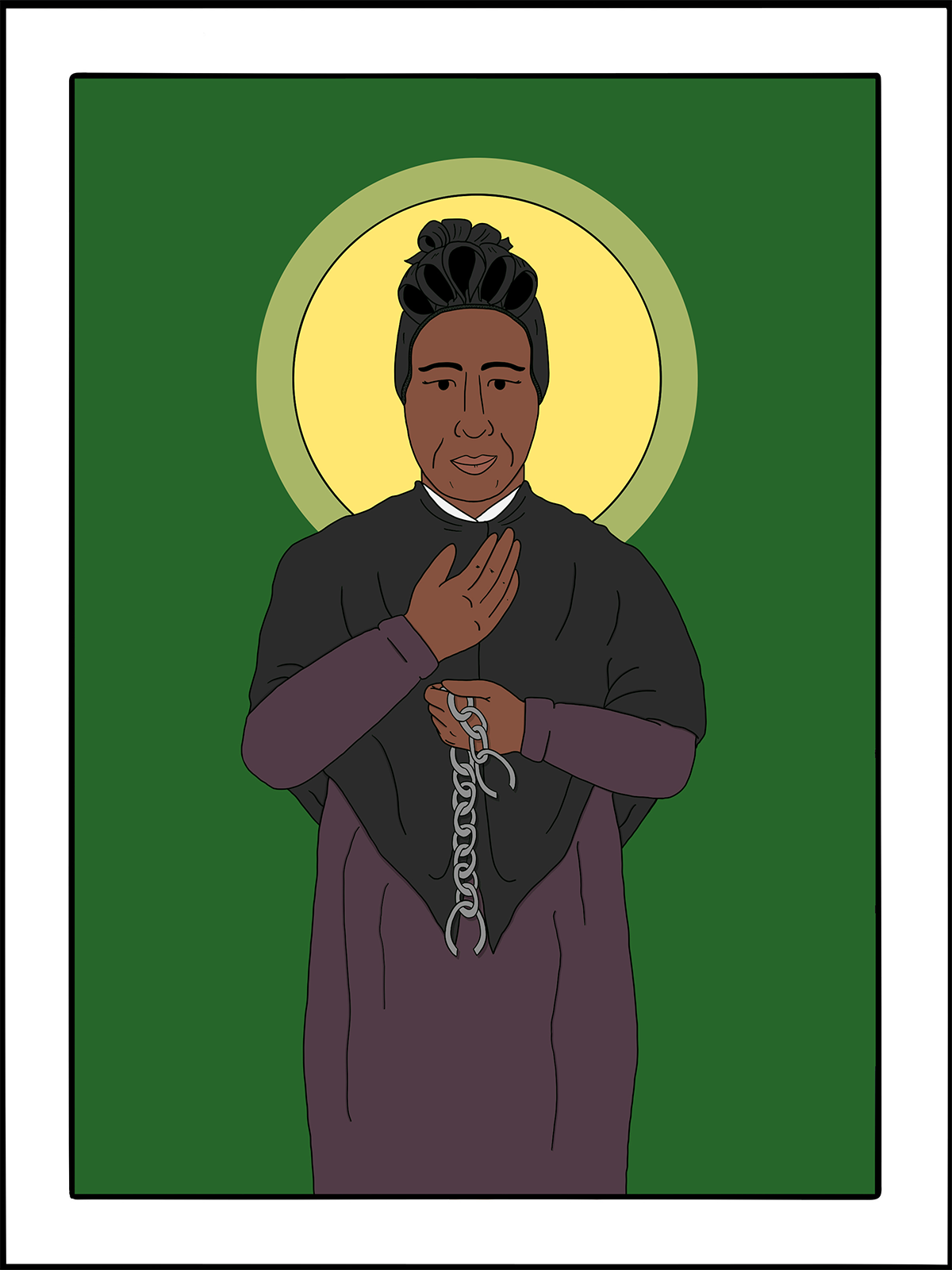
February 8
Bakhita (Josephine Margaret Bakhita)
Monastic, 1947
art by Rev. Kirsten Kohr of Uhrichsville, Ohio O God of Love, who delivered your servant Josephine Margaret Bakhita from the bondage of slavery to the true freedom of your service; Grant to the wounded your healing grace in mind, body, and spirit and to your church the zeal to combat exploitation and slavery in all its forms; through Jesus Christ our Lord. Amen.
Josephine Margaret Bakhita was born in Olgossa in the Darfur region of southern Sudan. At the age of seven, she was kidnapped and sold into slavery. The girl was so traumatized by the experience that she was unable to remember her name. Bakhita means "fortunate one" -a name given to her by the same slave raiders who forcefully removed her from her family and village. Even as a child, she said that she experienced God in her heart without ever having been evangelized. She said, "Seeing the sun. the moon and the stars. I said to myself: Who could be the Master of these beautiful things? And I felt a great desire to see him, to know him, and to pay him homage.”
Although technically illegal, the entire Sudan region in the late nineteenth century was a raiding ground for various groups of armed slave traders. Enslaved for twelve years, she endured untold hardship and suffering. She was resold several times, finally in 1883 to the Italian consul in Khartoum, Sudan. After he gave her to his friend Augusto Michieli, she went with him and his family to Italy, where she worked as a nanny for their young daughter, Mimmina. Accompanying the girl to Venice's Institute of the Catechumens, Josephine found herself drawn to Christianity. She was baptized as Josephine in 1890.
The hardships in her life meant that Josephine did not easily express her joy. But she often expressed the joy she experienced through Christ at the font where she was baptized, kissing it and saying: "Here I became one of the daughters of God!"
Josephine entered religious life in 1896 as a Canossian Daughter of Charity. In 1902, she went to the city of Schio (northeast of Verona), where she served her religious community. She soon became well-loved by the children attending the sisters’ school and by the local citizens. By the end of her life, Josephine was renowned across Italy for her loving, spiritual wisdom.
Josephine knew the reality of being a slave, an immigrant, and a spiritual seeker. Even today, countless children, women, and men continue to be victimized and trafficked into slavery. Josephine serves as an inspiration to those who work to free girls and women from oppression and violence, and to return them to their dignity in the full exercise of their rights. Not only is she a model of resistance, but Josephine also reminds us of our obligation to strive against the evil and injustice of human trafficking and uphold the dignity of every human person.
Excerpted directly from “Lesser Feasts and Fasts 2022,” p. 82-83.
Lessons and PsalmColossians 1:24-29
Psalm 91
Luke 18:1-8
Preface of a Saint (3)

